
The Business of Fashion
Agenda-setting intelligence, analysis and advice for the global fashion community.

Agenda-setting intelligence, analysis and advice for the global fashion community.
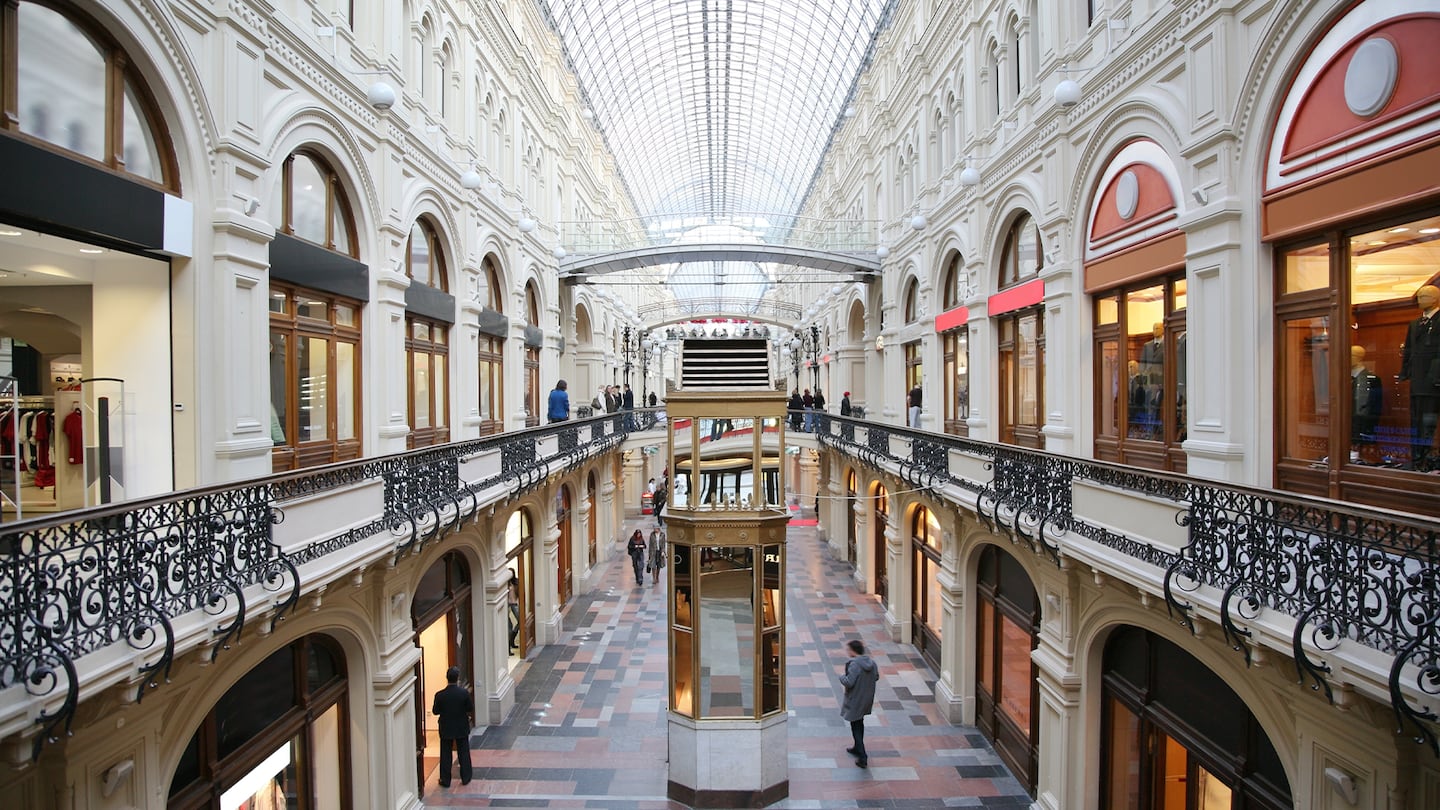
This week, a flurry of luxury’s biggest names voiced their support for Ukraine following Russia’s invasion of the country last Thursday. Armani, LVMH, Kering, Prada and others announced donations to aid organisations like the UNHCR and the Red Cross, issuing statements in favour of peace. Few, however, went so far as to address Russia’s role in the crisis, or to announce new policies about doing business with the country.
Neutrality has long been the luxury industry’s default stance on political and social issues as brands seek to sell their products across borders, and often on both sides of divisive issues. But in recent years, increased political polarisation and consumer activism, particularly on social media, have pushed brands to engage with socio-political issues more frequently. Dior’s “We Should All Be Feminists” T-shirt, Gucci’s stance against gun violence, and the broader industry’s response to the killing of George Floyd all offer examples of the industry’s growing willingness to take a stand to hasten change.
On Russian aggression, however, brands have been more cautious, even though Western sanctions have already disrupted many from doing business as usual in the region. It’s a contrast with companies like Apple, Disney and Exxon, which have paused business in Russia, openly citing moral grounds.
“The big decision for luxury brands is whether to join Apple… and cut off the Russian market,” Bernstein analyst Luca Solca said. “Politics is divisive by definition, while major global brands are trying to appeal to all.”
ADVERTISEMENT
While top-spending clients from Russia have long been a fixture of fashion week audiences, the country’s material contribution to the bottom line is limited. Analysts estimate the Russian market accounts for somewhere between 3 and 5 percent of global luxury sales, despite the repatriation over the pandemic of some spending Russians used to do abroad.
Last year, Italy exported around €1.4 billion ($1.54 billion) worth of luxury fashion and beauty to Russia, less than 2 percent of the country’s total exports for the category, according to Carlo Capasa, president of the Camera Nazionale della Moda Italiana (CNMI) trade group.
At puffer coat maker Moncler, less than 2 percent of the group’s sales come from Russian clients at home and abroad, according to the brand. Valentino, which operates in Russia through a franchise agreement with a local partner, said the country represents 3 percent of turnover.
For some brands that deal in high-end jewellery, watches and couture, exposure to the Russian market could be higher, as demand is likely driven by a small, yet very wealthy, proportion of the population rather than a broad base of middle-class consumers snapping up shoes or entry-level bags, according to Mario Ortelli, managing partner of luxury advisors Ortelli & Co. “The average [price] ticket is higher because the key buyers are [high-net-worth individuals],” he said.
Still, in most cases taking a stronger stance on Russia’s invasion of Ukraine would be far from financially crippling. “Given the relatively small exposure to the region, some luxury brands could follow [the example of companies like Apple] to appease consumers in the West,” said Morningstar analyst Jelena Sokolova.
For Hungarian accessible luxury label Nanushka, which does roughly €50 million in sales, taking a political stance against Russia was worth the risk of losing its customers there. In addition to offering support to refugees fleeing Ukraine, the brand halted all business in Russia, ceasing deliveries, refusing new orders, and severing ties with wholesale partners in the country.
“It was not an obvious or an easy choice, because we have the utmost respect for Russian people, and to Russian partners, friends,” Vanguards Group chief executive Pèter Baldaszti said. “In no shape or form do we make decisions that are supposed to harm them or humiliate them, it’s really not about that,” he said. While the brand didn’t operate stores in Russia, selling via e-commerce and local retailers, the country had been growing fast, accounting for near 10 percent of total sales, he said. But “Luxury is not a necessity,” he said. “We can make profit elsewhere without the moral consequences.”
On Thursday, the British Fashion Council urged brands to take a stand against the Russian government’s actions. “We encourage all those in our network to show their support, however they can, for the global campaign condemning Russia’s invasion of Ukraine,” the trade group said in a statement.
ADVERTISEMENT
Smaller brands can actually benefit from taking vocal stances as they carve out their niche, Bernstein’s Solca said.
Larger brands with stores and employees on the ground, however, have to weigh the human consequences of a stronger stance. Others, like Valentino and Kering-owned Balenciaga, operate in the region via local franchise partners.
Whether brands keep doing business in Russia is increasingly being decided by logistical factors rather than moral commitments. Western sanctions against Russia have impacted international shipments, payment systems and travel, meaning that even though luxury goods are exempt for now, many brands are unable to process payments or fulfil orders. In Italy, sanctions are “generating a systematic collapse for all the manufacturing goods exports to Russia, not only for luxury or fashion,” CNMI’s Capasa said.
Burberry and Net-a-Porter are among the companies that have paused shipments to Russia as a result of operational challenges. On Friday, Hermès was the first major luxury brand to announce that it would close its three Russian stores and pause commercial activities in the region.
Russian demand is likely to keep sinking, putting the economic interest of operating in the country in question. Since the invasion last Thursday, the value of the rouble has fallen by more than 25 percent against the dollar. The weak rouble will lower living standards and fuel inflation, already high in the country — as a punishing exchange rate piles on shortages of essential goods that could stem from sanctions. The phenomenon of local shoppers reportedly racing out to buy luxury items as a safe haven for wealth amid the collapsing value of the ruble is almost sure to be short-lived.
THE NEWS IN BRIEF
FASHION, BUSINESS AND THE ECONOMY
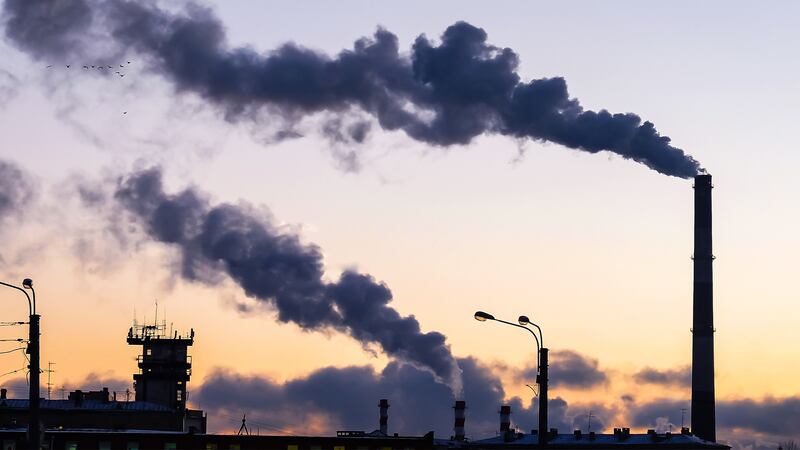
Apparel among worst performing sectors on climate disclosure, CDP says. After analysing submissions from 13,120 companies, the nonprofit CDP found the worst-performing sectors for disclosure generally were transport and apparel — both of which have less than 0.3 percent of companies disclosing against all the indicators.
ADVERTISEMENT
Dior to reopen its historic Avenue Montaigne flagship. The project, which will see the store re-open on Mar. 6 with a museum, restaurant, pastry shop and luxury suite, comes as Dior gains on Chanel, with analysts estimating it has tripled sales to $7.2 billion under CEO Pietro Beccari.
Cartier lawsuit accuses Tiffany of stealing luxury jewellery trade secrets. According to a complaint filed in a New York state court in Manhattan, Tiffany hired an under-qualified junior manager away to learn more about Cartier’s “High Jewellery” collection, where pieces typically cost $50,000 to $10 million.
Nordstrom projects strong full-year results. The retailer on Tuesday forecast full-year revenue will rise between 5 and 7 percent (analysts project 3.6 percent growth), helping quell investor worries about the effects of global supply chain disruptions, and signalling strong demand for its upscale apparel and footwear as Americans resume normal life.
Zalando forecasts online fashion sales growth to decelerate. Europe’s biggest online fashion retailer signalled revenue may miss analysts’ estimates for 2022, predicting sales of €11.6 billion to €12.3 billion. Analysts had been expecting €12.2 billion.
Rich Russians spend on luxury to stop savings melting away. As sanctions take their toll, Russia’s wealthy are turning to luxury jewellery and watches in a bid to preserve the value of their savings. Sales in Bulgari’s Russian stores have risen in the last few days, the Italian jeweller’s chief executive officer Jean-Christophe Babin said.
American Eagle warns of earnings hit due to higher freight costs. The Aerie parent said on Wednesday it expects a first-half earnings decline because it used pricier air freight in the latter half of last year to circumvent factory closures in Asia. It reported an adjusted operating income of $92 million for the fourth quarter ended Jan. 29, including $60 million in elevated air freight costs. It had earlier projected an operating income of between $90 million and $100 million.
Victoria’s Secret reports favourable fourth-quarter earnings but forecasts downturn. The lingerie giant beat analysts’ estimates for the quarter ending Jan. 29, with almost $2.2 billion in revenue. Sales increased 4 percent compared to the same period in 2020, but fell below the nearly $2.3 billion it posted in the fourth quarter of 2019 under its former parent L Brands.
THE BUSINESS OF BEAUTY
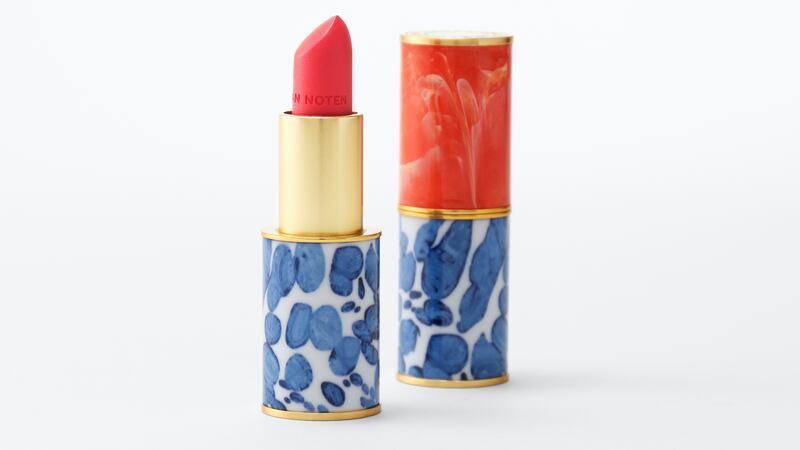
Dries Van Noten branches into beauty. The designer’s segue into beauty, which will see it launch refillable lipsticks and perfumes alongside soaps, hand creams and accessories, comes five years after the designer entered into a deal with Spanish group Puig.
Beauty software maker Perfect near $1 billion SPAC deal, sources say. The Asian start-up that makes software for the beauty and fashion industries, is nearing a deal to go public by merging with US-listed blank-check company Provident Acquisition Corp., people familiar with the matter told Bloomberg.
KKR-backed Wella aims for IPO as haircare market recovers. The cosmetics maker was spun off from Coty in 2020, when KKR became a majority investor.
Gwen Stefani launches beauty brand. The No Doubt singer is following in the footsteps of many celebrities before her in launching a beauty label. Called GXVE Beauty (pronounced ‘give’), the brand’s lipsticks, eyeshadow palettes, eyeliner pencils and face oil are available on its own e-commerce platform and will roll out in Sephora’s brick-and-mortar locations on Mar. 12.
PEOPLE
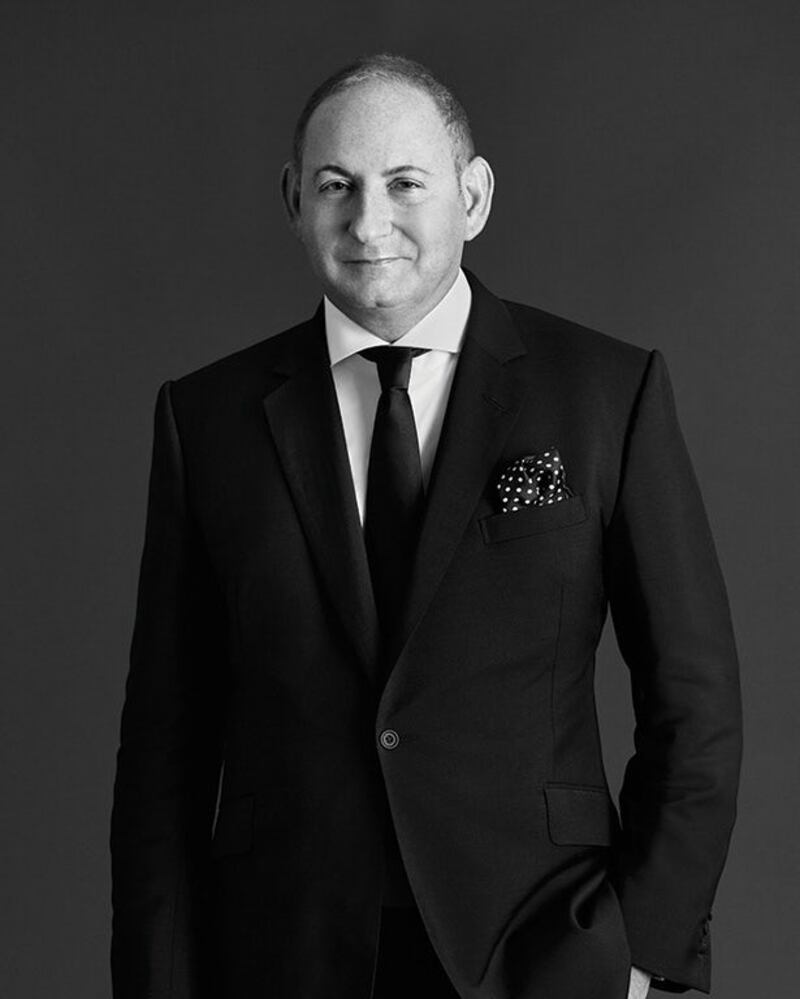
Estée Lauder ousts senior executive Demsey over Instagram post. The news comes less than a week after the company suspended him over an Instagram post that reportedly contained a racial slur.
Ralph Lauren chief commercial officer resigns in wake of misconduct allegations. Howard Smith, a 20-year veteran of the company, stepped down immediately following an investigation. A replacement for Smith, who will leave officially April 2, has not been named.
Adidas appoints Alasdhair Willis to chief creative officer. The former creative director of Hunter, and co-founder of Wallpaper* Magazine, has worked with Adidas on a number of projects, including the development of Adidas by Stella McCartney. Willis will report to Brian Grevy, executive board member of global brands, beginning in April.
David Greenberg appointed chief executive of L’Oréal USA, president of North America. The long-time executive and current president of L’Oréal Professional Products Division in North America will succeed Stéphane Rinderknech. Previously, he served as president of Maybelline, Garnier and Essie within L’Oréal USA’s Consumer Products Division.
MEDIA AND TECHNOLOGY
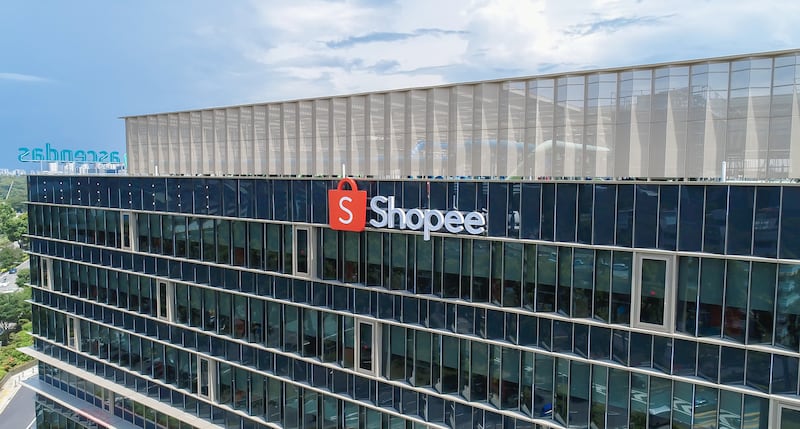
Sea’s Shopee exits France just months after Europe foray. France was one of the most significant new markets for the Singapore-based internet giant, which embarked on an aggressive international push last year to drive growth beyond Southeast Asia.
Vogue Ukraine called on luxury brands to halt distribution of luxury goods in Russia. The magazine, owned and operated by Media Group Ukraine, published a call to action on its Instagram account.
Compiled by Joan Kennedy.
Though e-commerce reshaped retailing in the US and Europe even before the pandemic, a confluence of economic, financial and logistical circumstance kept the South American nation insulated from the trend until later.
This week’s round-up of global markets fashion business news also features Korean shopping app Ably, Kenya’s second-hand clothing trade and the EU’s bid to curb forced labour in Chinese cotton.
From Viviano Sue to Soshi Otsuki, a new generation of Tokyo-based designers are preparing to make their international breakthrough.
This week’s round-up of global markets fashion business news also features Latin American mall giants, Nigerian craft entrepreneurs and the mixed picture of China’s luxury market.